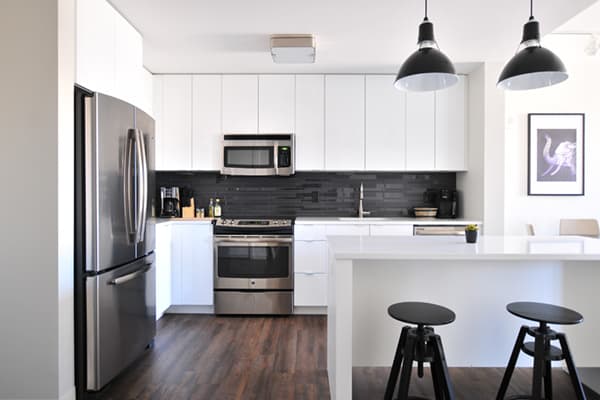First Time Buyer Mortgages
Buying your first home is a rite of passage for many and an exciting time for all. The key to a successful home purchase is to know exactly what’s going on and what is available in the market. An informed buyer is a confident buyer and when you’re spending this much, knowledge really is power!
At first glance, the mortgage market looks complicated, but with the help of Integrity Mortgages securing your first mortgage can be straightforward and hassle-free.
What is a first-time buyer mortgage?
A first-time buyer mortgage is a product specifically tailored to those who have not owned a home before. Different lenders classify first-time buyers differently but is typically when you, or both, applicants have never owned their own home.
That does not count commercial property. If you own or have a mortgage for a café, pub or other commercial premises, you can still qualify for a first-time buyer mortgage.
You are not usually classed as a first-time buyer if:
- You’re living in an inherited property
- Someone is buying a property for you
- Your partner or co-borrower has owned their own home previously
As we said, different lenders have different ideas of what a first-time buyer actually is so check the small print before you apply.
What types of first-time buyer mortgages are there?
There are a range of mortgage types on the market that suit different circumstances. While we cannot recommend a particular type of mortgage here, the following are what’s currently available.
- Fixed-rate first-time buyer mortgage – A mortgage where the interest rate is fixed for a certain period of time. That will be typically between 2-5 years. During that time, your interest rate will remain static regardless of what happens in the market.
- Standard variable rate first-time buyer mortgage – The standard variable rate (SVR) is the lender’s default rate and is normally higher than a fixed-rate or tracker. This is the rate you will move to when your mortgage deal expires and is generally a good time to start looking for a new mortgage deal.
- Tracker first-time buyer mortgage – Tracker mortgages are also variable but track the Bank of England’s base rate plus an agreed percentage.
- Discounted first-time buyer mortgage – Discount mortgages are also variable and are set by the lender. It will typically follow the lender’s standard variable rate with an agreed discount.
- Offset first-time buyer mortgage – Offset mortgages combine a savings account with a variable mortgage. Any interest you would earn on savings would be taken off the mortgage interest. The more you have in savings, the higher the potential interest savings.
- Capped first-time buyer mortgage – A capped mortgage follows the lender’s standard variable rate but has an upper rate cap. This prevents interest from rising above a set rate for the duration of the deal.
Different first-time buyer mortgage types work for different people in different situations. Make sure to explore your options fully before committing!
Contact us at Integrity Mortgages if you need the help of a professional!
How much can I borrow as a first-time buyer?
Mortgages are now all about affordability. Can you afford to borrow the amount and pay it back each month? It’s less about what you earn and more about what you can afford to pay.
There are still qualifying criteria and you will require sufficient income to cover the cost of the mortgage and a credit report that supports that.
A lender will consider your credit history and score, your income and outgoings and any deposit you can put down. There is no set figure that you can borrow anymore as all circumstances are different.
How first-time buyer mortgages work
The mortgage application process is now much easier to get your head around. It used to be tied rigidly to salary multiples and credit scores but now it’s much easier to understand once you get to know it.
The first-time buyer mortgage process looks a little like this:
- Save for as much deposit as you can (remember to allocate a proportion of your budget to solicitors fees)
- Assess your income and outgoings
- Consider how much you could realistically pay each month
- Find out how much you can borrow
- Get a mortgage in principle
- Begin house hunting
- Find a conveyancing solicitor to handle the legalities
- Make an offer and have it accepted
- Work with your mortgage provider or mortgage broker and apply for a mortgage
- Work through the valuation, mortgage offer, inspections and property checks with your conveyancer
- Exchange contracts with the seller
- Complete the mortgage
- Move into your new home!
How long does a typical first-time buyer mortgage take to complete?
The house purchase process in England and Wales takes on average around 90 days. That’s from instructing your solicitor and applying for the mortgage to getting the keys and moving in.
The process can be made faster but that isn’t normal and certainly isn’t advisable for a first-time buyer unless your situation demands it.
When is the best time to apply for a first-time buyer mortgage?
There are two stages to applying for a first-time buyer mortgage. The mortgage, or agreement, in principle and the actual mortgage.
We recommend applying for a mortgage in principle from a lender as soon as you begin house hunting. It gives you a good idea of what you can afford and it shows estate agents you’re a qualified buyer.
Good estate agents will request to see your mortgage in principle before they accept an offer so it makes sense to have it in place before you find a property you fall in love with.
Once you find your dream home and have an offer accepted, you should apply for the mortgage properly. You don’t have to go with the same company you got the mortgage in principle from, you can select any lender you like.
What else do I need to know about first-time buyer mortgages?
This list could potentially be huge but we think there are a few things all first-time buyers should know before applying for mortgages.
- Fees and costs – You also have to factor in solicitors’ fees, mortgage fees, surveys and insurance as well as the deposit and the cost of the house.
- Factor in rate rises – Interest rates may be low at the moment but they may not always be low. Factor in a rate rise of up to 5% to make sure you can afford your mortgage for the years to come.
- Have a safety net – If the global pandemic taught us anything is that it is worth saving a little for a safety net. In an ideal world you would have an emergency fund of 6 months of mortgage payments and bills to cover you if the worst happens.
- Mortgage brokers offer tailored solutions – To make sure you’re getting the most suitable mortgage for your situation an impartial mortgage broker, like Integrity Mortgages, will review the a range of products. We can tailor our approach and the products we recommend to your particular situation. We can even help you with the application!
If you’re considering a first-time buyer mortgage, it pays to work with the experts. Contact Integrity Mortgages today to see what we can do for you.
Integrity Mortgages has access to major lenders and we use our experience and personal approach to find mortgage products that match your financial situation.
Things to consider
- How much can you afford to borrow?
- What deposit will you need?
- Have you accounted for your moving costs?
- How would you cover your mortgage costs if you lost your job?
About us
Integrity Mortgages Limited trading as Integrity Mortgages is an appointed representative of HL Partnership Limited, which is authorised and regulated by the Financial Conduct Authority. You should be aware that the Financial Conduct Authority does not regulate some forms of Buy to Let mortgages.
A fee is payable for arranging the mortgage once your mortgage has agreed. This will be a fixed fee of £399.
The guidance and / or advice contained in this website is subject to UK regulatory regime and is therefore restricted to consumers based in the UK.
You voluntarily choose to provide personal details to us via this website. Personal information will be treated as confidential by us and held in accordance with the Data Protection Act 1998.
You agree that such personal information may be used to provide you with details of services and products in writing, by email or by telephone.
Fill out the form below and one of our expert advisers will get back to you as soon as possible.
Contact us
THINK CAREFULLY BEFORE SECURING OTHER DEBTS AGAINST YOUR HOME. YOUR HOME MAY BE REPOSSESSED IF YOU DO NOT KEEP UP REPAYMENTS ON A MORTGAGE.
Integrity Mortgages Limited trading as Integrity Mortgages is an appointed representative of HL Partnership Limited, which is authorised and regulated by the Financial Conduct Authority.
, which is authorised and regulated by the Financial Conduct Authority.
The guidance and/or advice contained in this website is subject to UK regulatory regime and is therefore restricted to consumers based in the UK. You voluntarily choose to provide personal details to us via this website.

Integrity Mortgages is registered in England and Wales with company number 08651906. Registered office: - The Old Bank, 109 Rowlands Road, Worthing, BN11 3LA



